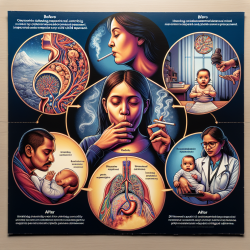Introduction
In today's digital age, equipping children with the skills to navigate health information online is crucial. The study titled "Testing a school-based program to promote digital health literacy and healthy lifestyle behaviours in intermediate elementary students: The Learning for Life program" offers valuable insights into how educators can enhance digital health literacy (DHL) and promote healthy lifestyle behaviors among students. This blog delves into the findings and implications of this research, providing actionable strategies for practitioners in educational settings.
The Learning for Life Program
The Learning for Life (L4L) program is a classroom-based intervention aimed at students in grades 4 to 7. Developed by the University of British Columbia’s Digital Emergency Medicine team, the program focuses on increasing DHL and encouraging healthy lifestyle habits such as physical activity, nutrition, sleep hygiene, stress management, and social connectedness. The program is designed to be flexible, allowing teachers to integrate it into their existing curriculum seamlessly.
Key Findings
The study employed a pre-post design involving three Canadian schools. Key findings include:
- Improvement in Digital Health Literacy: Students showed a significant increase in DHL from pre- to post-intervention, although this effect diminished at the two-month follow-up.
- Healthy Lifestyle Changes: Post-intervention, a majority of students reported adopting healthier behaviors, such as increased physical activity and better dietary choices.
- Technology Usage: The study highlighted that most students had unsupervised access to digital devices, underscoring the need for programs like L4L to guide them in discerning quality health information online.
Implications for Practitioners
For practitioners aiming to implement similar programs, the following strategies are recommended:
- Integrate DHL Education: Regularly incorporate DHL lessons into the school curriculum to help students develop critical skills for evaluating online health information.
- Promote Long-term Engagement: Encourage continuous engagement with the program content beyond the initial intervention period to sustain improvements in DHL and healthy behaviors.
- Customize Delivery Methods: Tailor the program to fit the unique needs of each classroom, leveraging interactive tools like online graphic novels to engage students effectively.
Encouraging Further Research
While the L4L program shows promise, further research is needed to explore its long-term impact and effectiveness across diverse educational settings. Practitioners are encouraged to collaborate with researchers to refine and expand such interventions, ensuring they address the evolving needs of students in a digital world.
To read the original research paper, please follow this link: Testing a school-based program to promote digital health literacy and healthy lifestyle behaviours in intermediate elementary students: The Learning for Life program.










